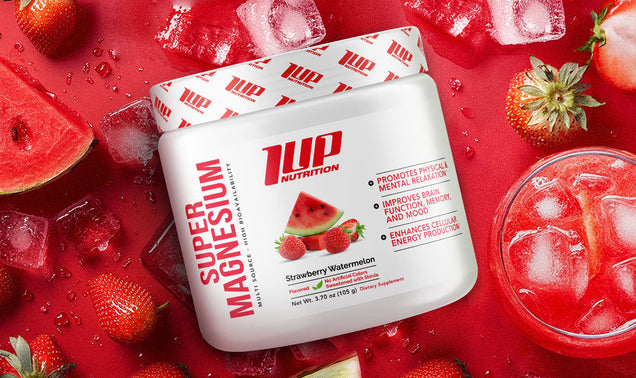Food is meant to be enjoyed, savored, and shared with family, friends, and loved ones. However, at its core, food provides essential fuel for the body. And, the amount of food required by an individual depends largely on their body composition -- height, weight, muscle mass, and body fat percentage.
Put another way, different people require different amounts of protein, carbohydrates, fats, and total calories. Further complicating matters are individual performance and physique goals -- macro needs for muscle gain are considerably different for fat loss. Yet another thing to consider is an individual’s training schedule -- the amount of carbohydrates (and thus total calories) are vastly different for an ultra-endurance athlete vs the casual fitness enthusiast looking to build strength, improve body composition, and participate in a transformation challenge.
With that in mind, here are some examples/general recommendations based on body weight, fitness goals, and lifestyle circumstances.
#1 Protein Requirements
Suffice it to say that the “minimum” requirements for daily protein intake are substantially different from one individual to another, including level of physical activity, body composition, height, weight, and fitness goals, and it should also be mentioned that the “generally accepted” levels of protein intake are far below adequate for active individuals.
Fitness researchers recommend that physically-active individuals interested in building strength, losing body fat, and improving body composition are advised to consume between 0.8-1.2 grams of protein per pound of bodyweight. FYI, recommendations for sedentary individuals (or basic “survival”) are approximately HALF of that!
The reason for this is that physically active individuals (gym enthusiasts, and bodybuilders, etc.) subject their muscles to increased training stress, which requires more essential amino acids (BCAA/EAA) to support muscle recovery and repair, in addition to resisting the increased risk for catabolism (muscle breakdown) that accompanies aggressive fat-loss diets.
A few of our favorite protein-rich foods to enjoy are:
- Lean beef
- Poultry
- Fatty fish
- Shellfish
- Eggs
- Cottage cheese
- Greek yogurt
- Protein powder (e.g. 1UP Whey Protein, Egg Protein, or Vegan Protein)
#2 Carbohydrate Requirements
The amount of carbohydrates you consume daily depends on a few factors, including your training demands, body recomposition goals, and personal preference. To the latter point, some individuals enjoy (“respond”) better to higher carbohydrate intakes than lower intakes. Additionally, regarding fat loss protocols, certain individuals experience greater feelings of fullness and less feelings of hunger using a combination of fasting + low-carbohydrate diets while others operate better on a higher-carbohydrate, lower fat diet. Additionally, endurance athletes require substantially greater amounts of carbohydrates than sedentary individuals as well as those seeking to lose body fat or build muscle & strength.
With that in mind, it is important to experiment with your personal diet and find the right amount of carbohydrates for YOUR body type, goals, and preferences. If you’d like help customizing your daily intake of carbohydrates, make sure to check out the 1UP Fitness App where we provide customized nutrition and training support based on YOUR preferences.
#3 Dietary Fat Requirements
Akin to protein, fat is an essential macronutrient, which is to say that our bodies always have a reserve of body fat to tap into…however, there are certain fatty acids that the human body cannot synthesize (similar to essential amino acids, EAAs), which requires us to obtain them through food or supplements, such as 1UP Omega-3.
While some individuals feel more energized and less hungry on a higher fat (“keto diet”) and others perform better on a lower fat diet, the generally recognized level of daily fat intake (per kilogram of body weight) is 0.3g.
Our preferred sources of dietary fat include:
- Extra virgin olive oil
- Egg yolks (yes, some saturated fat is required for hormone production and health)
- Fatty fish (which are rich in omega-3 fatty acids)
- Grass-fed butter
- Avocado
- Flax seeds
Takeaway
An athlete’s weight impacts macro needs as do several other factors, including body composition, fitness/physique goals, genetics, height, and personal preferences. Use the pointers outlined above to help figure out your macro needs, and for additional assistance, check out the 1UP Fitness App where you gain access to customized macro needs and training recommendations based on YOUR desires.
References
- Jäger R, Kerksick CM, Campbell BI, Cribb PJ, Wells SD, Skwiat TM, Purpura M, Ziegenfuss TN, Ferrando AA, Arent SM, Smith-Ryan AE, Stout JR, Arciero PJ, Ormsbee MJ, Taylor LW, Wilborn CD, Kalman DS, Kreider RB, Willoughby DS, Hoffman JR, Krzykowski JL, Antonio J. International Society of Sports Nutrition Position Stand: protein and exercise. J Int Soc Sports Nutr. 2017 Jun 20;14:20. doi: 10.1186/s12970-017-0177-8. PMID: 28642676; PMCID: PMC5477153.






